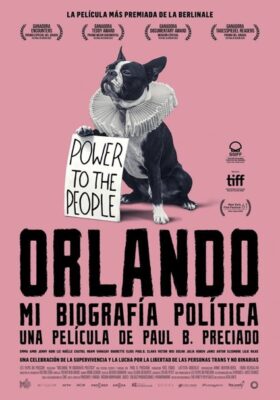Search
To search for an exact match, type the word or phrase you want in quotation marks.
A*DESK has been offering since 2002 contents about criticism and contemporary art. A*DESK has become consolidated thanks to all those who have believed in the project, all those who have followed us, debating, participating and collaborating. Many people have collaborated with A*DESK, and continue to do so. Their efforts, knowledge and belief in the project are what make it grow internationally. At A*DESK we have also generated work for over one hundred professionals in culture, from small collaborations with reviews and classes, to more prolonged and intense collaborations.
At A*DESK we believe in the need for free and universal access to culture and knowledge. We want to carry on being independent, remaining open to more ideas and opinions. If you believe in A*DESK, we need your backing to be able to continue. You can now participate in the project by supporting it. You can choose how much you want to contribute to the project.
You can decide how much you want to bring to the project.

How to narrate one’s own biography through others? What experiences, tragedies and joys do we share with others? Paul B. Preciado has made his debut as a film director with Orlando, my political biography. In it, he adopts the voice of Orlando, the main character of Virginia Woolf’s novel, to poetically narrate his own biography, since he assures that the author had already written the biography of the director long before he was born.
But this biographical story is not articulated around a single Orlando, but rather there are different Orlandos who together articulate a story with a clear intention: to express the gender discomforts present in our society. Paul uses different “actors” who give life to the character of Orlando. The interesting thing about this is that not only is it a representation of Orlando’s story, as told by Virginia Woolf, but the character’s own story is intertwined with the stories of the different Orlandos, of the different actors who play his role, but also from Paul himself. In the feature film, Woolf’s own story is questioned, drawing contemporary Orlandos who, unlike the original, did not suddenly wake up in another body, but rather this bodily change has suffering and processes until reaching a body in which to feel comfortable.
And what does it mean to inhabit a new body and, with it, a new gender? Woolf’s own Orlando already faces the implications of inhabiting both a body and a different gender, what it means to be a man and a woman in a social framework, and our contemporary Orlandos do the same. But the latter face an added problem: what is it like to feel that your new body, and your new gender, is not recognized by society or institutions? What is it like to face continuous questioning of your own identity from external entities?
Gender in our current society has already transcended beyond the imposed dichotomy between man and woman, no matter how much many TERFs, joining hands with the far-right, try to hide it. Miguel Misé, in a conference titled “Gender Discontents”, which he gave within the Feminist Alliances seminar held at the Reina Sofía in October 2023, already expressed that the new generations not only question whether they feel like a man or a woman, but also the type of man, woman or non-binary person they want to become, expanding the concept of transsexuality beyond the barriers imposed by gender binarism. The approach that Paul B. Preciado uses in his feature film adapts perfectly to the transversal view of gender that these new feminisms propose, questioning what has been imposed on us and why, and treating transsexuality in this context in which the umbrella opens, beyond that binary.
The performativity of our being, taking into account that every act and body is always political, is another of the themes that arise in this narrative. And the fact is that playing with the spaces outside and inside the scene, the incorporation or removal of props, or the combination between the different personal stories and that of Orlando’s character means that the action is located in an indeterminate space between reality and fiction: to what extent are we and to what extent do we act? If we accept gender as a social construction, and not as something innate, to what extent does the way we act define our being, beyond what we have inherited or are innate to us?
The political biography of Paul B. Preciado is then understood as a poetic reflection capable of addressing real and present concerns and discomforts in our current society. A biography built collectively that sends us a final hopeful message, unfortunately still utopian, of a society that comes to accept and live with all those realities present in it.

Gerard Zamora (Sant Cugat del Vallés, 2001) holds a degree in Art History with a mention in Artistic Heritage Management (UAB), and a master’s degree in Contemporary Art History and Visual Culture (UAM, UCM, MNCARS). His research has been based on the exploration of the contemporary artistic fabric of Barcelona and Madrid. He has also participated as curator in exhibitions such as “Entre lo íntimo y lo exterior” (Galería Nueva) and “Sobre la mesa: Semióticas de la cocina” (Biblioteca MNCARS); and collaborates in publications such as A*Desk Critical Thinking.
"A desk is a dangerous place from which to watch the world" (John Le Carré)